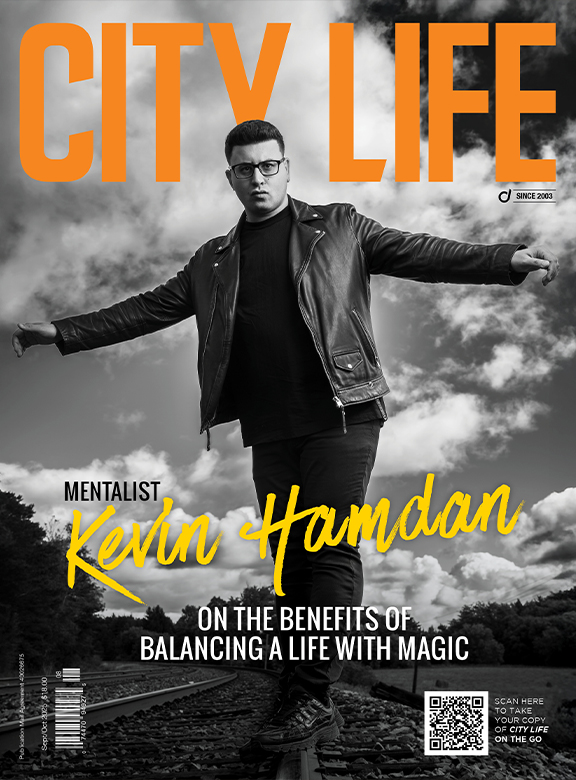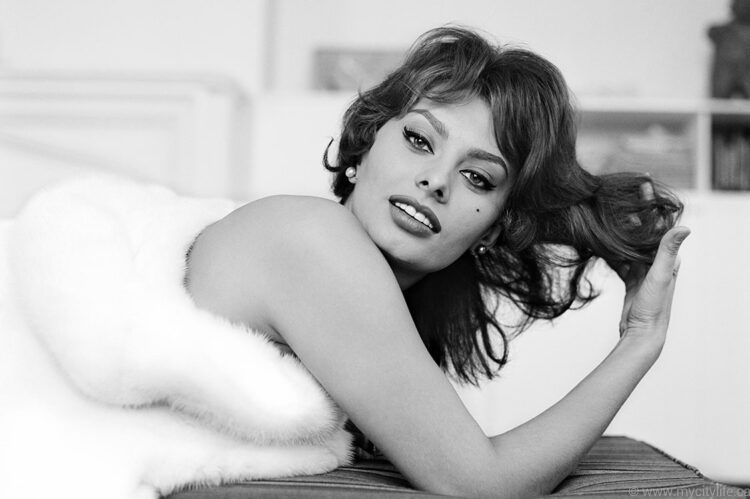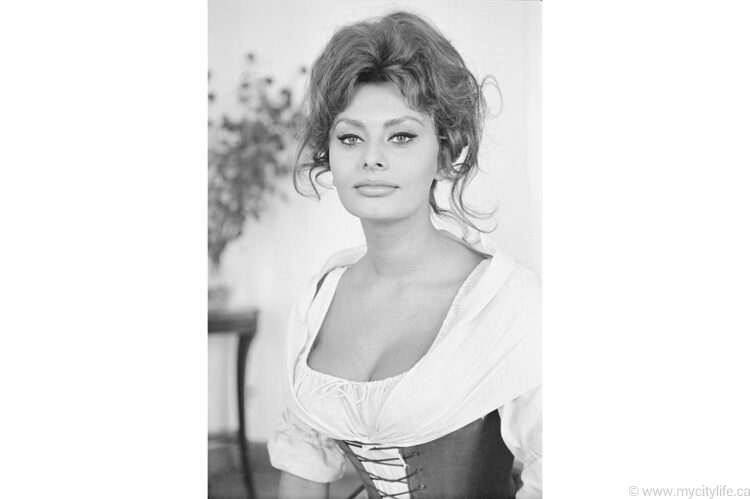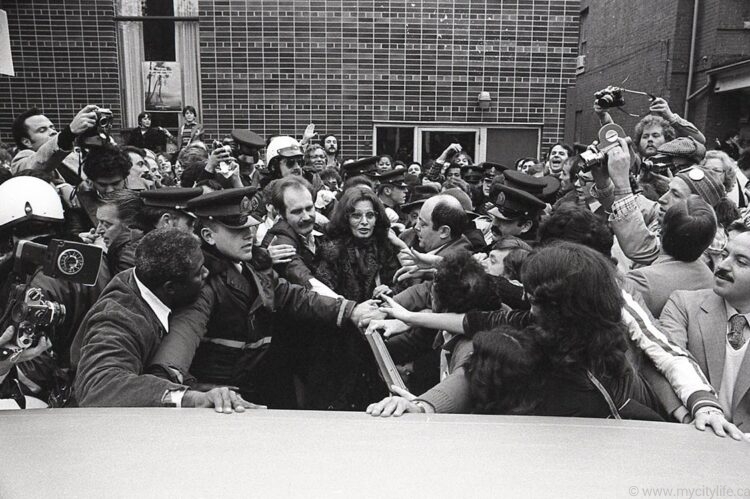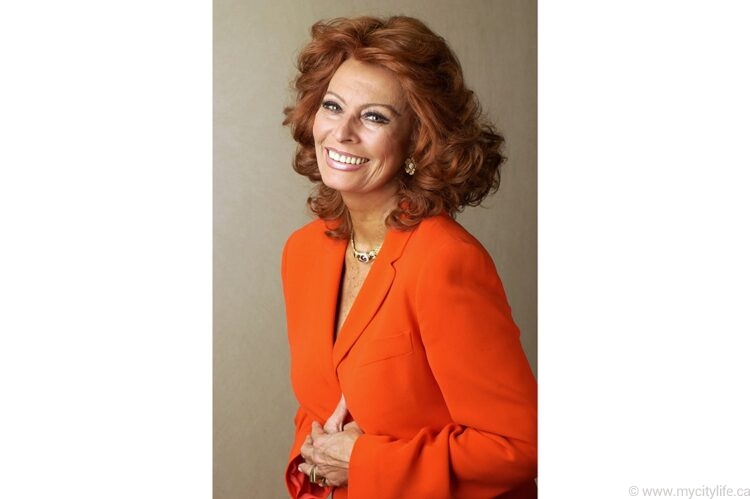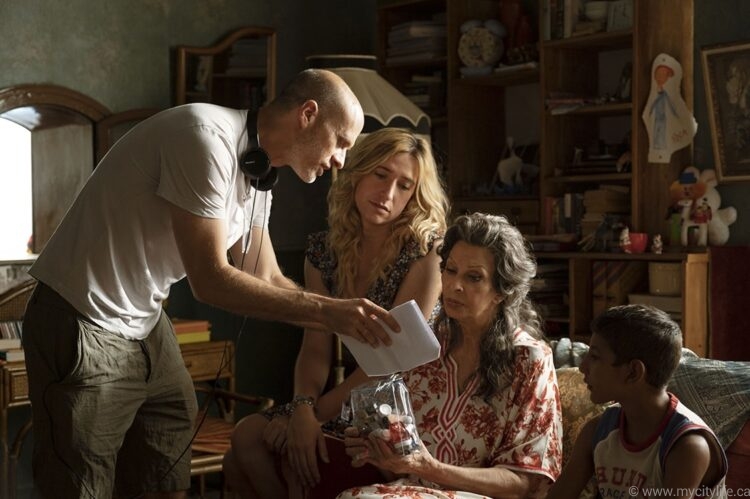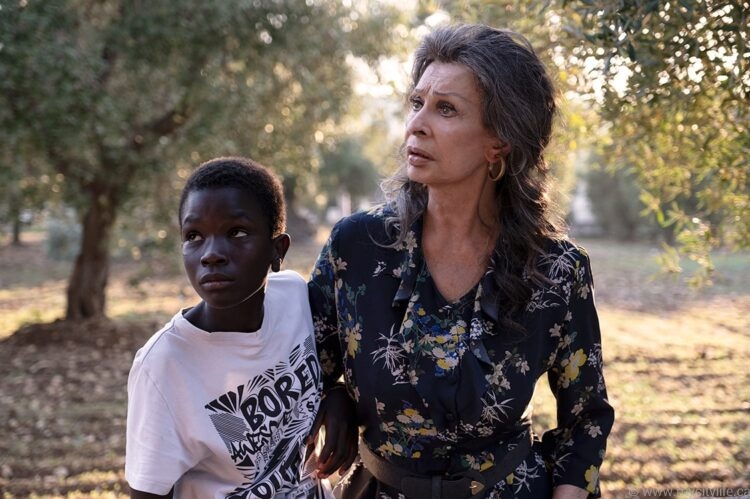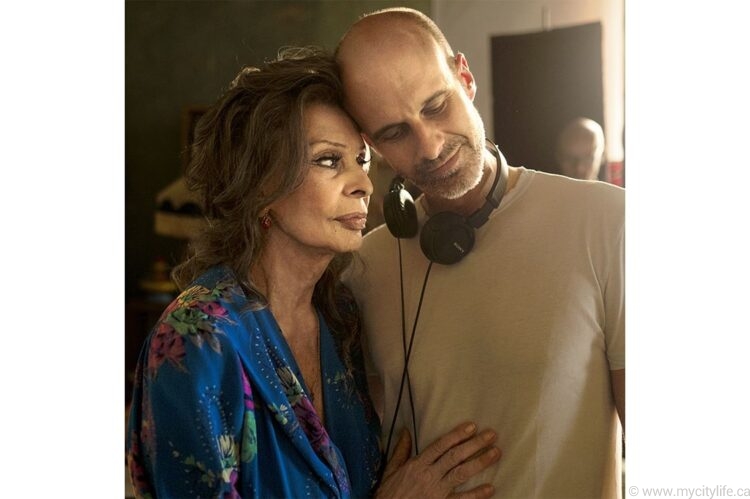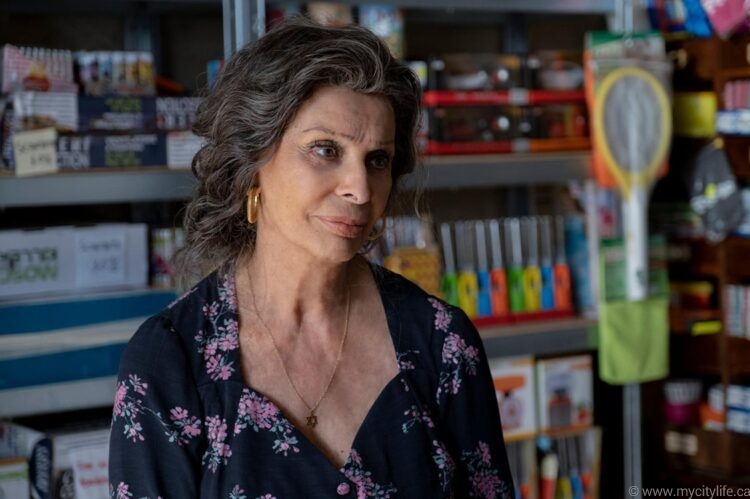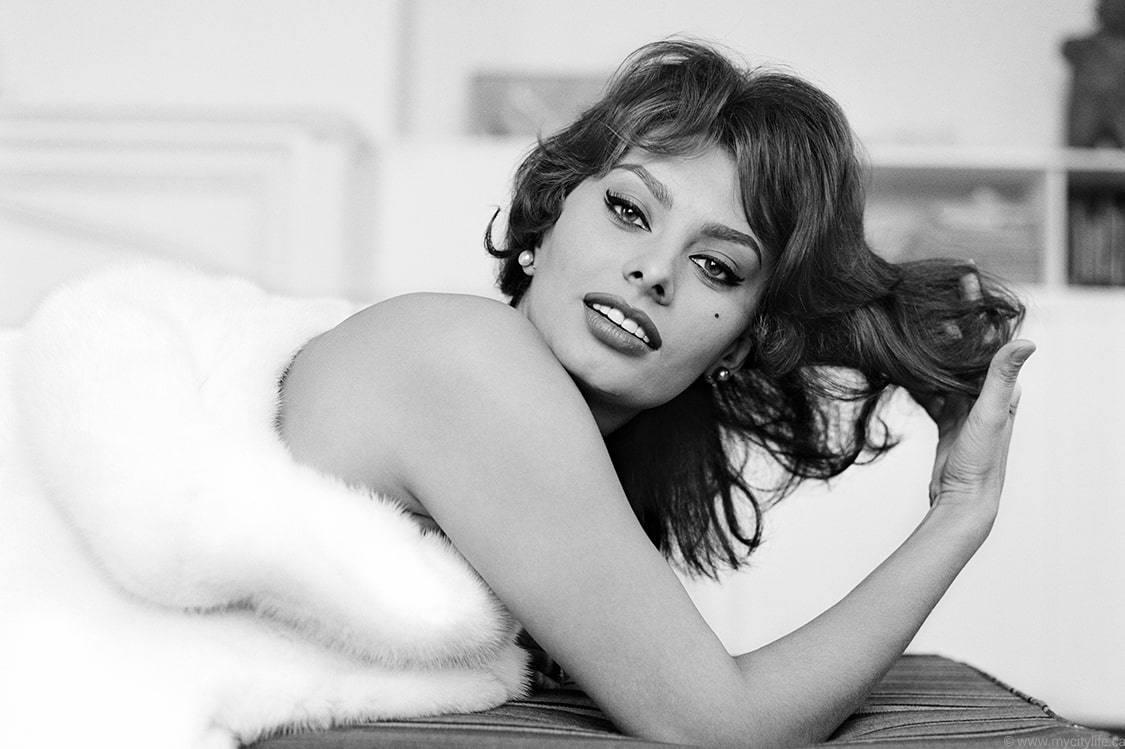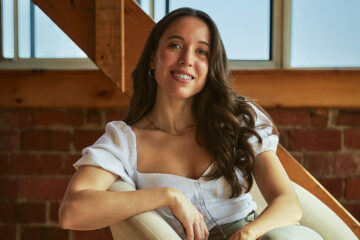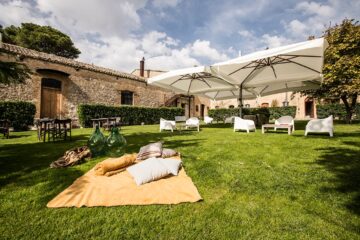Sophia Loren: Return of the Queen
Actress, icon, legend, mother — as Sophia Loren returns to cinema in a project that is, for so many reasons, close to her heart, she talks beauty, life, love and the absence of regrets.
Seldom does one find oneself in the presence of royalty, but in the case of Sophia Loren, that’s precisely the aura she casts. Film royalty, that is — a screen icon, whose breathtaking beauty and charisma have left a lasting mark on Italian, European and American cinema.
Having just turned 86, Loren still projects the glamour and grace that have made her a living legend. Tall and elegant, she is not just a national treasure in her native Italy, but also an enduring symbol of eternal feminine beauty around the world.
“I never saw it as anything but a gift,” she says. “It was a blessing for me, and I appreciated how it opened up so many opportunities for me. It was never something I worried about or really thought too much about. You only tend to become annoyed if that is all people think you are. That is difficult …
“So, you have to always make sure that you are pushing yourself to be so much more than just your appearance. Beauty is a great gift, but it is also up to you to go beyond that and not think that is the only thing that matters. If I didn’t have any talent for acting, I would never have been able to accomplish anything, or at least not anything close to what I did.”
For Loren, who was crowned “Miss Elegance 1950” as one of the three finalists in her first Miss Italia pageant, this growing reputation was at times a problem when she was first making her way into moviedom, first as Sofia Scicolone and then as Sofia Lazzaro.
“What’s difficult is, when you’re young and trying to prove yourself,” she nods. “There are so many beautiful young girls trying to become actresses, and there are many people trying to take advantage of them. I was lucky in that I always had good people there to look after me and protect me, when I began to work in the cinema.
“I was also fortunate in becoming successful in the ’50s, when beauty had a different meaning than it has today. There was a wonderful sense of glamour about being an actress, and it wasn’t so commercialized and cheapened the way it often is today. Today, every young actress and even models are becoming famous so soon that they have no time to develop their own personalities and character. They have no life any more, other than their fame, and that’s very dangerous.”
Did this idea spur her on, making her more determined than ever to prove herself?
“I would have done the same thing, anyway,” she says. “Even if the world tells you that you’re beautiful, you don’t really think about it. Yes, you appreciate it, and it’s flattering, of course, but it’s not something you’re carrying in your head. When I was making movies at the beginning of my career, I only thought about doing good work and learning as much about acting and improving with every picture I was making.”
It was not until 1953 that “Sophia Loren” was born — an idea developed by legendary Italian film producer Carlo Ponti in an effort to broaden the young star’s international appeal. The move was a resounding success, as Loren went on to star that year in Aida to widespread critical acclaim.
By 1958, Loren had made her breakthrough in The Gold of Naples, appeared in classics such as Scandal in Sorrento and The Pride and the Passion, and she signed a five-picture deal with Paramount Pictures that would cement her place in Hollywood.
“I was always fascinated with the movies and I was constantly acting out scenes by myself or in front of friends,” she recalls. “I give a lot of credit to my aunt, who would take me to the movies. She was always encouraging me, as was my mother. My mother believed in me, and she gave me such confidence when she kept telling me that she thought I would be a big star one day.
“Those are the kinds of experiences that give you the courage and belief in yourself to go out and achieve things in life. I knew that I wanted to lead an interesting life and I saw that the cinema offered me that chance. Acting, for me, is a way to think about what I am doing and what I am able to do, which I could not do before. I have learned so many things in my profession that it is a pleasure to show feelings, to show suffering and feeling joyful. It is a wonderful thing.”
Her burgeoning role as Ponti’s protégé was not just a path to professional success for Loren. In 1957, the pair married, when she was 23 and he 44. They remained husband and wife until Ponti’s death in 2007, but it is clear that his memory continues to have an impact on the worldly Loren to this day.
I was always fascinated with the movies and I was constantly acting out scenes by myself or in front of friends
“My greatest accomplishment to this day is my family,” she smiles. “I credit my wonderful and beloved late husband, Carlo, for having given me my two sons, Carlo and Edoardo, respectively. The most challenging achievement, in my opinion, is to build a balanced, happy family unit. It is more difficult than any career achievement, for it demands endless love, altruism and patience.”
This year, that thread between the personal and professional sides of Loren’s well-publicized, almost-mythical existence intertwine once more.
Her upcoming project, The Life Ahead (“La vita davanti a sé”), is not just a poignant film which marks her first screen appearance in a decade. The drama sees Loren play Madame Rosa, a Holocaust survivor who comes to look after a 12-year-old immigrant boy from Senegal, and it is a family affair off-screen, as well, being directed by her youngest son, Edoardo Ponti.
“He’s the director, and I’m the actor,” she says. “I do what I am told. But because we are so close, I can almost read his mind. He doesn’t have to direct me too much. It is so nice to be on set with my son. When he proposed the role to me, it was a dream come true. I jumped at the opportunity to make it.
I loved portraying Madame Rosa. She is tough, she is fragile, she is a survivor. In many ways, she reminds me of my own mother.
“When I was little, the impact of the war made life difficult for me and my mother and so many of our friends. It’s impossible to imagine how you survived so many of the things you suffer through, when you look back. You don’t see how you did it, but that was the same for my mother and other people who had the responsibility of trying to look after their children and families. It was a terrible time for everyone, but the world is what it is, and you have to cope with it … You don’t have a choice.”
Considering the things Loren has seen in the past 8.5 decades, from the start of the postwar rebuild through the golden age of Hollywood and beyond, how does she view the recent sea change that has swept cinema with the Time’s Up and #MeToo movements?
Everything turned out so well for me. Even if my mother and I had a troubled life at the beginning and then we really needed me to succeed as an actress, you understand that those obstacles that life put in front of you were what pushed you to make something of your life
“I am happy that women are taking themselves more seriously,” she nods. “No one should be taken advantage of. I never let that happen to me. I have never found myself in a similar situation to what other actresses have been revealing. Never. Perhaps, because I had my mother next to me, who taught me so many things. I could never have allowed myself to be in such a situation, and if it had happened, I would have fled. I understand it, but the solution is there: go away — run.”
That’s not to say, of course, that Loren was not the focus of intense media frenzies for much of her life. Not only was her marriage to Ponti overshadowed by bigamy allegations relating to his first wife, but also the relationship between Loren and her The Pride and the Passion and Houseboat co-star, screen legend Cary Grant, 30 years her senior, nearly sent her down a different, most Americanized path.
“At the time, it was a very traumatic situation for me. I won’t deny that Cary’s courtship sent me into a state of confusion, but I intended to have a family with Carlo,” she explains.
“You have to make your choices in life and go on from there. I don’t like to look back. It would drive you crazy, and what’s the point, because you can’t change the past. It doesn’t exist anymore. Once I had made my decision to leave and go back to working in Italy and my life there, I didn’t have any regrets.”
It seems unbelievable, considering Loren’s life and lifestyle, that there would be no fleeting moments of remorse, however unlikely.
“Why should I?” she asks. “Everything turned out so well for me. Even if my mother and I had a troubled life at the beginning and then we really needed me to succeed as an actress, you understand that those obstacles that life put in front of you were what pushed you to make something of your life,” says Loren.
“Nothing comes easily in life. When we moved to Rome after coming from a small town like Pozzuoli, it was like entering a jungle, where everything is so strange and forbidding. I was only 15 years old, and it was like starting my life over again. But looking back and thinking about the enormous sacrifices my mother and I made and how it was a fight to live, I still have to say that things turned out very well, no?”
It’s a remark one finds hard to disagree with. Loren is nothing less than an icon and trailblazer — the first person in film history to win an Academy Award for a foreign-language performance.
“It’s been wonderful, extraordinary in every sense,” she says. “I always saw things positively. And I have not stopped thinking that way. I’ve always been a simple person, who has been open to enjoying the finer things that life has had to offer. I’ve also had the ability to dismiss the nasty things in life and always try to move forward and think about what I can accomplish in the future.
“When you have accomplished certain things and reached levels you could never even dream of, it is very difficult to judge who you have become and what you have experienced. Today, I can say that I am aware of having lived a very full life and lived very intensely. I don’t think I could have lived with any more passion than I have.”
Even today, relishing her return to the world of 10-hour shifts on set and long days of getting the perfect take under the watchful eye of her son Edoardo, Loren remains as effervescent and vivacious as ever.
“Life is life,” she laughs. “You should enjoy your time here, and aging is part of that time. So, enjoy it, too. Take care of yourself.
“What’s going to happen will happen, but your happiness is up to you. And that affects everything. I’m not particularly fond of getting older, but I can still fake being 15 years younger. I like to live my life, I like to have my children, I like to get old, I like to look younger. Why not? Is that a sin? No.”
THE LIFE AHEAD (2020)
Based on the French novel “La vie devant soi” by Romain Gary, the drama sees Loren play Madame Rosa, a Holocaust survivor who comes to look after a 12-year-old immigrant boy from Senegal. Previously adapted for the big screen by Israeli filmmaker Moshe Mizrahi as “Madame Rosa,” a 1978 film which starred Simone Signoret and won the Oscar as best foreign-language film, the film is also notable for the fact that it is directed by Loren’s son, Edoardo Ponti, who also wrote the screenplay and was responsible for luring his legendary mother out of retirement.
